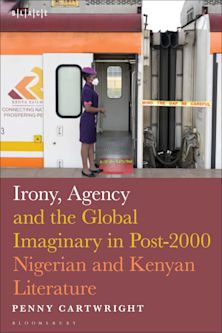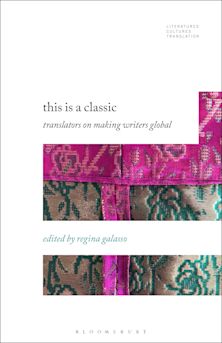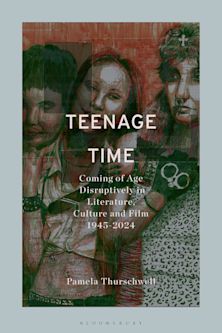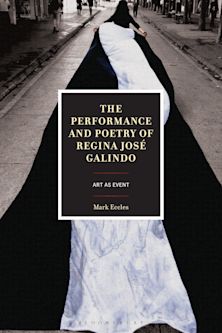- Home
- ACADEMIC
- Literary Studies
- Contemporary Literature
- Cultural Antagonism and the Crisis of Reality in Latin America
Cultural Antagonism and the Crisis of Reality in Latin America
You must sign in to add this item to your wishlist. Please sign in or create an account
Description
For most of the 20th century, Latin American literature and art have contested political and cultural projects of homogenization of a manifestly diverse continent. Cultural Antagonism and the Crisis of Reality in Twentieth-Century Latin America explores literary and humanist experimentations and questions of gender, race, and ethnicity as well as the contradictions of capitalist development that belie such homogenization by reconfiguring the sense of the real in Latin America.
Covering four key geographical areas, Mexico, the Caribbean, Central America and the Andes, every chapter delves into a question that has been central to the humanities in the last 20 years: Indigenous world-views, gender, race, neo-liberalism and visual culture. Legrás illuminates these issues with a thorough consideration of the theoretical questions inherent to how new identities disrupt the imaginary stability of social formations.
Table of Contents
Preface
1. The Nativist Avant-Grade
2. Miguel Angel Asturias: The Science of Literature
3. Seeing Women Photographed in Revolutionary Mexico
4. The Dialectic of Diasporic Consciousness: The Afro-Cuban Voice and the Hypostasis of Meaning
5.José María Arguedas: Capitalist Accumulation and Novelistic Mode of Presentation in the Andes
6. Psychotic Violence: Crime and Consumption in the Apocalyptic Phase of Capitalism
Works Cited
Index
Product details

| Published | 06 Oct 2022 |
|---|---|
| Format | Ebook (PDF) |
| Edition | 1st |
| Extent | 192 |
| ISBN | 9781501392924 |
| Imprint | Bloomsbury Academic |
| Publisher | Bloomsbury Publishing |
About the contributors
Reviews
-
Legras is one of the most insightful and brilliant scholars of Latin American arts and literature today. Combining cultural-political history, textual and visual analysis, critical theory and psychoanalysis, this book works through the place of antagonism in Latin American modernity. Legras understands antagonism as the event whose emergence rearranges the Latin American real, and art and literature as the discursive sites where the contours of out-of-joint marginalized collective subjects can be traced and interrogated in the very act of dislocating the totalizing fictions put forth by the institutions that sustain the pretense of society as an objective, shared reality. This is an extraordinarily illuminating and
intelligent book; it proves that theory can still be deployed as an intempestive form of historical imagination to intervene in the most urgent debates of the present.Mariano Siskind, Professor of Romance Languages and Literatures and of Comparative Literature, Harvard University, USA
-
Cultural Antagonism reframes the question at the core of Latin American subaltern studies-'Can the Subaltern Speak?'-by creating a space for the voice of untimely pasts. Legrás's generative readings listen 'for the real in reality,' showing us again and again how existence escapes capitalism. This book is a brilliant and necessary intervention showing us how and why to read in the present.”
Karen Benezra, Independent Scholar and author of Dematerialization: Art and Design in Latin America (2020) and Accumulation and Subjectivity: Rethinking Marx in Latin America (2022)
-
Cultural Antagonism is an original and sophisticated intervention in longstanding debates related to race, representation and social antagonism in Latin America. Legrás's theoretical engagement with sciences, technologies and genres of representation of reality-anthropology, photography, testimonio-provides a methodological and conceptual guide to reconsider the region's relationship between cultural forms and the political.
Ignacio M. Sánchez Prado, Professor of Spanish, Latin American Studies, and Film and Media Studies, Washington University in St. Louis, USA and author of Strategic Occidentalism. On Mexican Fiction, the Neoliberal Book Market and the Question of World Literature (2018)



































